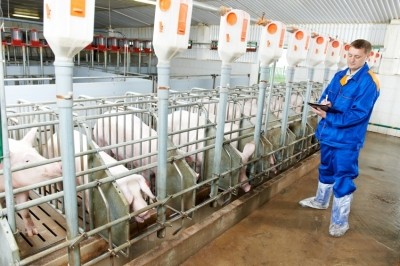Analyst maps out road ahead for Phibro after IPO: 'It can become the Pfizer of the animal health and nutrition space'

The initial public offering (IPO) last month by Phibro Animal Health Corporation (PAHC) saw it raise around $176.5 million in capital.
The animal health and nutrition firm, which is backed by UK private equity firm 3i Group, sold 11,765,000 shares at $15 per share – this was below its projected offer price of $16-$18 per share.
But the stock has had a steady climb higher since the IPO on consistent volume, said Dallas Salazar, an independent trader and former financial analyst with AIG and Merrill Lynch.
The Pfizer model
He said future growth for Phibro lies in its ability to pin down strategic opportunities to license, joint venture, and partner with competitors and new developers, he said.
“The biggest competitive advantage that PAHC has in this niche is its size and network. It is the brand name in this space and a landing place for developer ideas that want to launch into quicker ramp ups in sales or for smaller companies who don't want the hassle that comes from developing a sales force and all the other headaches of launching product.
Similar to how larger pharmaceutical companies get to cherry pick the best new drugs post FDA approval, PAHC gets to choose what products to license and bring to the table for the clients. Being able to quickly and cost effectively improve the spectrum of its services and pick up newer, best of breed solutions is a benefit that cannot be correctly valued.
I could see PAHC mimicking the piecing together of outside ideas that became the Pfizer model in pharmaceuticals,” said Salazar.
Good cash flow
Phibro has the cash flow to make this strategy a reality, said the financial analyst.
Revenue at the US group rose about 3% to $334.97m for the six months ended December 31.
Its animal health business, comprising antibacterials, anticoccidials, medicinal feed additives, nutritional specialty products, and vaccines, generated $384.9m in sales in 2013, or 59% of total sales.
The New Jersey-based company’s mineral nutrition unit, which includes trace minerals for livestock feed, had $203.2m in sales in 2013, representing 31% of total company sales.
Boosting immunity in dairy cattle
In 2013, Phibro ploughed $37.3m into investments, which included the acquisition of OmniGen Research (OGR) – a firm that makes an immunity boosting additive for the dairy sector.
Its OmiGen nutrition product is used with over 20% of the total dairy cow herd in the US, said Phibro, and is thus poised for additional growth in that market.
Last year saw Phibro launch OmniGen in several European countries and in Brazil. The company is working on securing regulatory approval for its use in the rapidly expanding Chinese dairy sector.
In January 2014, it bought the aquaculture business of Israeli firm, AquaVet, and, in June 2012, PAHC entered into a long-term license agreement with a global animal health group to share its vaccine delivery technology.
Phibro said it expects the animal health business to be the key driver of its future growth.
“Measured by revenues, we were the 3rd largest business in the MFA (medicated feed sector) sector in 2012.
We believe we are well positioned in the fastest growing food animal species segments of the animal health market with significant presence in poultry and swine, which are projected by [consultants] Vetnosis to grow globally at compound annual rates between 2012 and 2017 of 6.2% and 6.6%, respectively,” said PAHC.
US antibiotic developments
But a threat to revenues for Phibro over the next three years is the forced phase-out by the US Food and Drug Administration (FDA) of the ‘non therapeutic’ use of antibiotics in livestock husbandry, said Salazar.
“PAHC has done a good job of introducing new products and continually adjusting to the changing regulatory environment but there can be no guarantees that they can replicate this success in the future,” he said.
Phibro, in its SEC filing, said it intends to ensure that its antibacterial product offerings are in alignment with the FDA’s guidelines within the three-year implementation period, and said it will pursue both new and additional therapeutic claims for these with the US regulator.
The company said if it had voluntarily decided to withdraw all of its non-therapeutic claims for antibiotics in the US, its medicated feed net sales would have been reduced by around $15 to $20m for the year ended June 2013.
Emerging market consolidation
However, Phibro which already has a strong foothold in emerging markets, stands to benefit from the expected consolidation in the livestock sector in developing countries.
Farming operations with greater size and scale would demand more sophistication in feed inputs, said Salazar.
The company said it is planning to set up additional sales and technical offices in key developing regions such as Latin America and Asia.
“Our operations in countries outside of the US contributed approximately 37% of our revenues for the year ended June 30, 2013. According to an IMS Industry Market Survey, we were the fastest growing animal health company in Brazil in 2012,” said Phibro.







